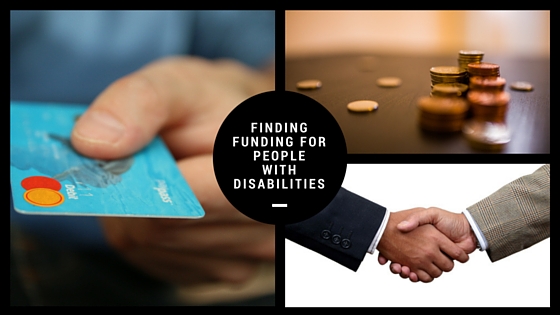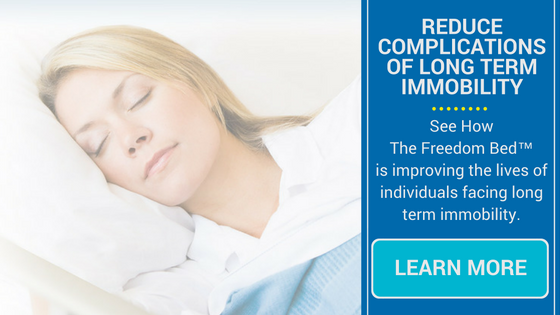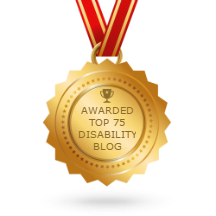
Living with some form of disability affects nearly 15% of the world’s population. Of the over 1 billion people affected, many live in poverty and endure the stigma of a less fulfilling life because of their unique circumstances.
Often times we neglect to understand the obstacles people can face not only physically and mentally – but financially as well, when facing immobility challenges.
If you have no insurance or your insurance provider rejects a claim for immobility resources and support, having access to granting organizations is paramount to ensuring that you’re able to achieve the level of support you need to make living with your immobility disability easier.
There are a range of funding opportunities available in the form of grants for those dealing with these challenges in the United States. Some are specific to particular immobility issues, and others advocate for disability awareness and support. Others opt to support families and individuals through community-based fundraising initiatives.
Centers for Independent Living – The NCIL offers a national policy platform that aims to assist in addressing issues of human and civil rights that help people with all types of disabilities live more full and independent lives.
The Christian Institute on Disability – The CID aggressively promotes life, human dignity and the value of all individuals – despite their disabling condition – from a biblical standpoint.
The Christian Fund for the Disabled – A modest grant program administered by Joni and Friends provides one-time grants for individuals in cooperation with churches and Christian organization. Grants are available to evangelical churches and groups that wish to help effectively support those affected by disability.
Division of Specialized Care for Children - Available to eligible patients under 21 years old, this agency serves children with certain chronic physical disabilities and health impairments. Administered by the University of Illinois, it serves children statewide through 13 regional offices.
Grants.gov – An agent of the US government, Grants.gov features many specific granting opportunities for people with disabilities through federal financial assistance programs to eligible applicants.
Federal Housing Administration – The largest mortgage insurer in the world, the FHA helps people choosing to move or make accessibility improvements to their homes. Loans can be used for acquisition or rehabilitation of housing.
Home Improvement Structural Alterations (HISA) - Administered by the HISA Department of Veterans Hospitals, this lifetime benefit program can be used, at a maximum of $6,800.
Disability.gov – A large informational guide to federal government grants, this website provides information on acquiring and applying for federal grants for individuals.
The Ability Experience – Serving all people with disabilities, the Ability Experience (formerly Push America) is a Pi Kappa Phi philanthropy fund founded in 1987, grants are given to community foundations that serve people with disabilities in providing new equipment or upgrades to their facilities.
Housing Adaptation Grant – A housing adaptation grant that aims to assist with changes to houses to be more suitable for people with a physical, sensory or intellectual disability.
Plans for Achieving Self-Support – A federally funded plan that helps people with disabilities to plan for their future by reaching goals using their own income. Related to employment, the plan can help people who need assistive technology and other equipment used for employment-related purposes. These plans are required to be approved by Social Security.
USA.gov – Provides timely information and resources to those affected by disabilities.
Disability Funding Consulting – The DFC supports grant programs and inclusion of people with disabilities in grant making organizations. Education, employment, housing, civic participation, arts and culture, technology, health care are included in funding opportunities.
Disability Rights Fund – An international fund dedicated to improving respect for dignity, autonomy and freedom to make one’s own choices. The fund follows the general principles stated in the Convention on the Rights or Persons with Disabilities – the first comprehensive human rights treaty of the 21st century. The Disability Rights Fund promotes a “shift away from treating persons with disabilities as ‘objects’ of charity, medical treatment or social protection.”
Blanche Fischer Foundation – A private nonprofit charitable organization that makes direct grants on behalf of Oregonians with physical disabilities. The resulting aid may relate directly to fostering personal independence. Only open to residents of Oregon.
United Spinal Association – A resource center for individuals with spinal cord disabilities, this site features many resources that help connect individuals with financial assistance programs geared towards people with disabilities.
Travis Roy Foundation – The Travis Roy Foundation focuses on granting opportunities for individuals with spinal cord injuries that help to enable independence through adaptive equipment grants.
Amy Van Dyken Foundation – A “powerful ally for those with spinal cord injuries, the Amy Van Dyken Foundation provides essential medical equipment for people with spinal cord injuries who cannot afford these necessities without additional outside funding assistance.
High Fives Foundation – The High Fives Foundation Empowerment Fund provides resources and inspiration to those who suffer a life-altering spinal cord injuries. They provide board-approved grants to service providers that include insurance, health, and adaptive equipment categories.
Friends of Man – Founded to provide donors with the opportunity to have 100% of their donation gifts used for charitable purposes. The Friends of Man helps people with a variety of needs that include mobility equipment.
Triumph Foundation – Through the Triumph Foundations program to help people with financial constraints, their Fundraising Partnership Program pairs individuals with the foundation to aim to find solutions to help raise funds for specific items and equipment. They also have a program to address home accessibility and modifications.
SCORE Fund – The spinal Cord Opportunities Rehabilitation Endowment is a non-profit organization dedicated to helping people with disabilities with substantial out-of-pocket costs associated with specialized equipment. Their end goal is to facilitate rehabilitation and independence.
The Cindy Donald Dreams of Recovery Foundation – Committed to creating a positive change in individuals lives by helping individuals to receive the necessary equipment related to spinal cord and brain injuries. The foundation hosts fundraisers to purchase therapy and therapy equipment to promote health and a better quality of life.
HelpHOPElive – A national non-profit, HelpHOPElive supports community-based fundraising through a donation-based crowdfunding style campaign for people with unmet physical and medically related expenses.
U.S. Department Of Veterans Affairs - The U.S. Government offers disability compensation which is tax free and paid to Veterans with disabilities related to disease or injury incurred during active military service. This program also supports post-service disabilities which are considered related to disabilities incurred under circumstances of military service.
People with disabilities shouldn’t have to fear the looming threat of debt, an impoverished life, or the stigma of a life-altering physical disability. Support, funding and grants are available to help you regain your sense of self, your independence, and your integrity.
Using these possible financial granting and funding resources may help you to obtain adaptive equipment that enables you to live a more fulfilling, independent life.


